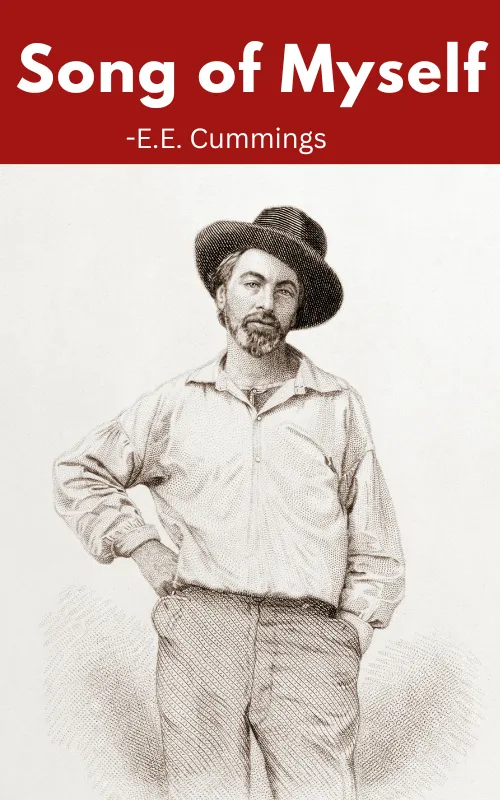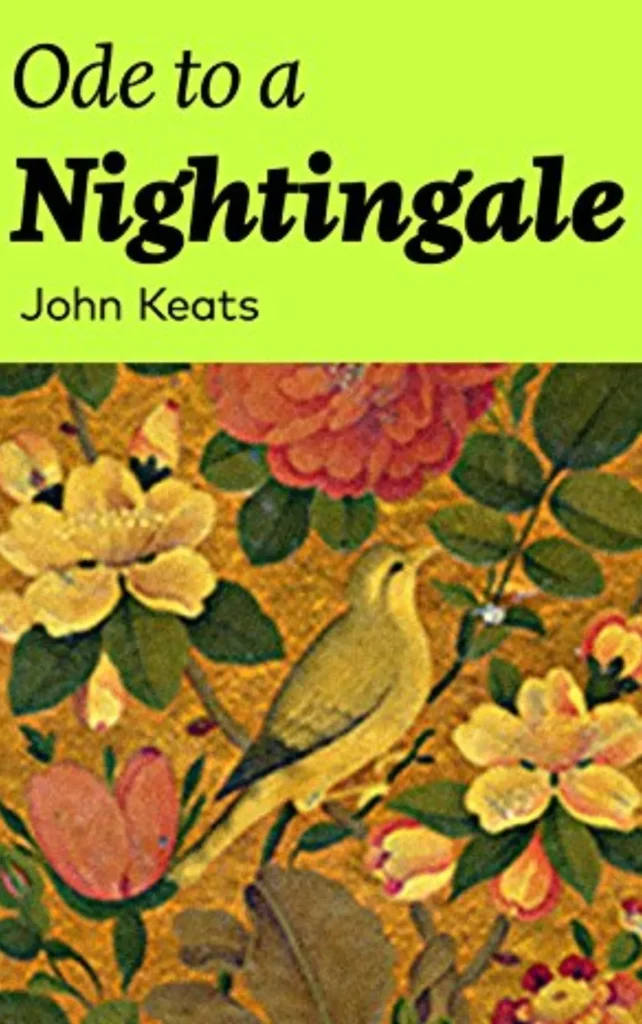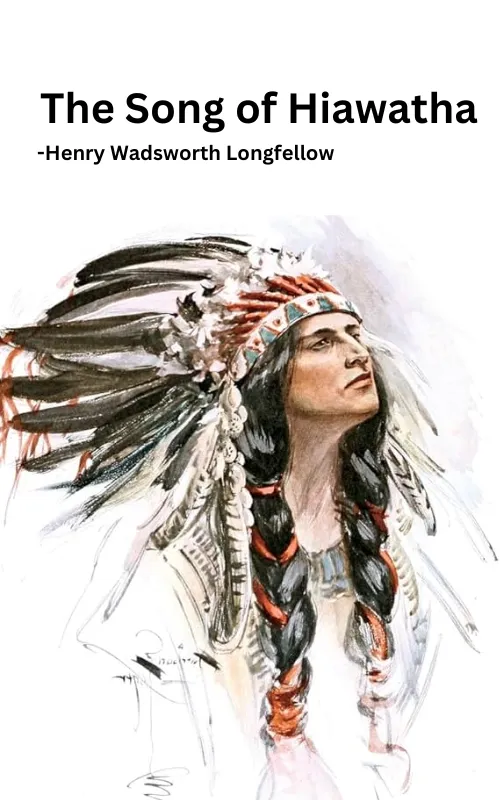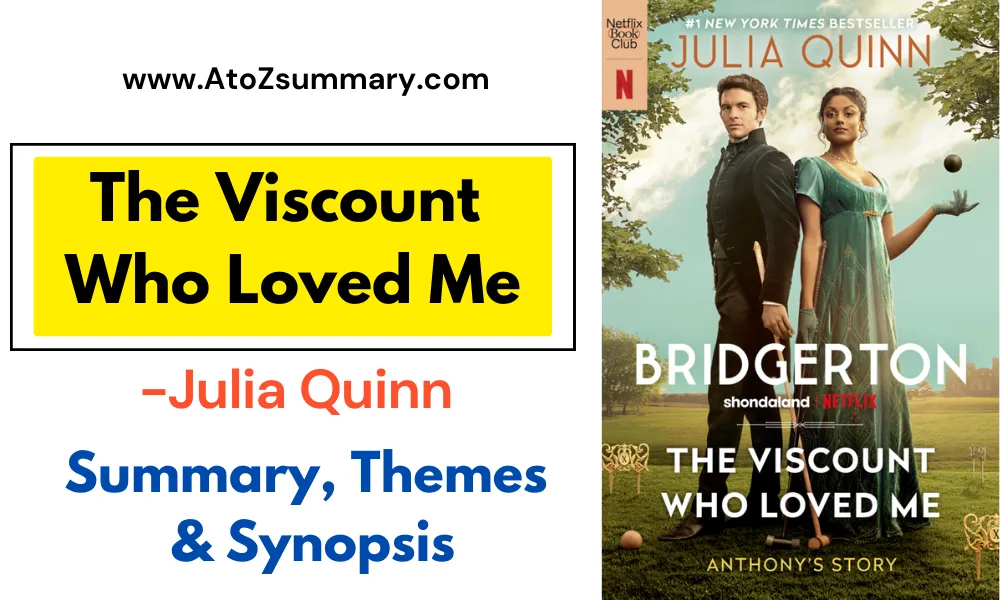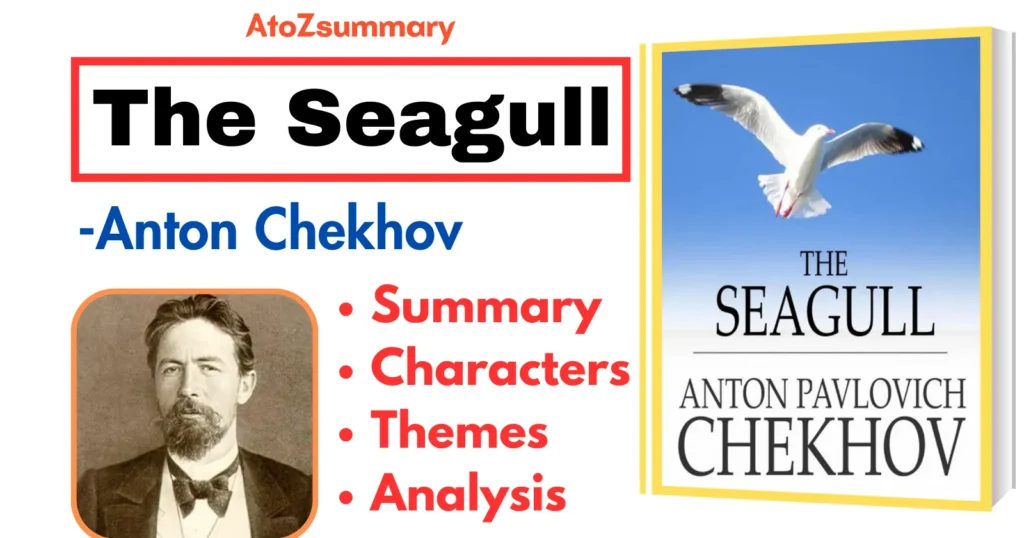About the Poem “Song of Myself”
| Poem Title | Song of Myself |
| Poet | Walt Whitman |
| Year Published | First published in 1855 as part of “Leaves of Grass” and later revised and expanded in subsequent editions. |
| Genre | Lyric poem |
| Form | Free verse |
| Length | 1,347 lines |
| Major themes | Individuality, transcendence, unity of the universe, sensuality, democracy |
| Central symbol | Grass |
| Other notable symbols | Leaves of grass, the human body, the cosmos |
| Poetic devices | Repetition, exclamation, incantation, catalogs, parallelism, imagery, symbolism |
Themes of Song of Myself
The themes of poem “Song of Myself” by Walt Whitman are:
- Individualism ➤ Celebrating the uniqueness and individuality of every person.
- Connection to Nature ➤ Recognizing the interconnectedness between humans and the natural world.
- Spirituality ➤ Exploring spiritual and transcendental experiences.
- Equality ➤ Advocating for equality and the idea that all people are of equal value.
- Sensuality ➤ Addressing human sensuality and the beauty of the human body.
- Democracy ➤ Reflecting on the ideals of American democracy and freedom.
- Identity and Unity ➤ Finding one’s identity while recognizing the unity of all people.
Song of Myself Summary & Analysis
Song of Myself is a famous poem written by Walt Whitman, an American poet, in the 19th century. The poem is known for its celebration of individuality, connection to nature, and the unity of all people. It’s a long and free-verse poem, consisting of 52 sections, and is a part of Whitman’s collection “Leaves of Grass.”
In this poem, Whitman celebrates himself and, by extension, all of humanity. He begins by stating that he celebrates and embraces his own existence, and he invites the reader to do the same. He believes that every individual is unique and contains multitudes, encompassing both the physical and the spiritual.
Throughout the poem, Whitman frequently connects himself to the natural world. He sees himself as a part of nature, as integral to the grass, the animals, and the elements. This connection to nature represents a sense of oneness with the world and the idea that all living things are interconnected.
Whitman’s poem is also deeply democratic and inclusive. He believes that all people are equal and should be celebrated, regardless of their social status, race, or background. He sees the diversity of humanity as a source of strength and beauty.
The poem contains vivid and sensory descriptions of various scenes and characters, making it a highly visual and evocative work. Whitman uses a first-person perspective, which makes the poem feel personal and immediate. He talks about his own experiences and observations, but these experiences are also meant to be representative of the human experience as a whole.
FAQs from Song of Myself
What is the main idea of the Song of Myself?
The main idea of “Song of Myself” is to celebrate individuality and the unity of all people.
Why was Song of Myself controversial?
Song of Myself was controversial because of its frank depictions of sexuality and its celebration of the individual.
What is the metaphor in the Song of Myself?
The grass is a metaphor for the interconnectedness of all life, and the cycle of death and rebirth.
What are the famous lines of the Song of Myself?
The famous lines of the Song of Myself are: I celebrate myself, and sing myself, and what I assume you shall assume. This line is from the very beginning of the poem, and it sets the tone for the rest of the work.
What is the paradox in Song of Myself?
The paradox in Song of Myself is that the self is both individual and universal.
What was Whitman’s purpose in writing Song of Myself?
Whitman wrote Song of Myself to celebrate the human spirit and its connection to the universe.
What point of view is Song of Myself written in?
Song of Myself is written in the first person point of view, from the perspective of a speaker who is celebrating their own existence and the existence of all things.
Why is Song of Myself a transcendentalism?
Song of Myself is a transcendentalist poem because it emphasizes the importance of intuition, nature, and the individual.
What section of Song of Myself is about death?
Section 49 of Song of Myself is about death.

